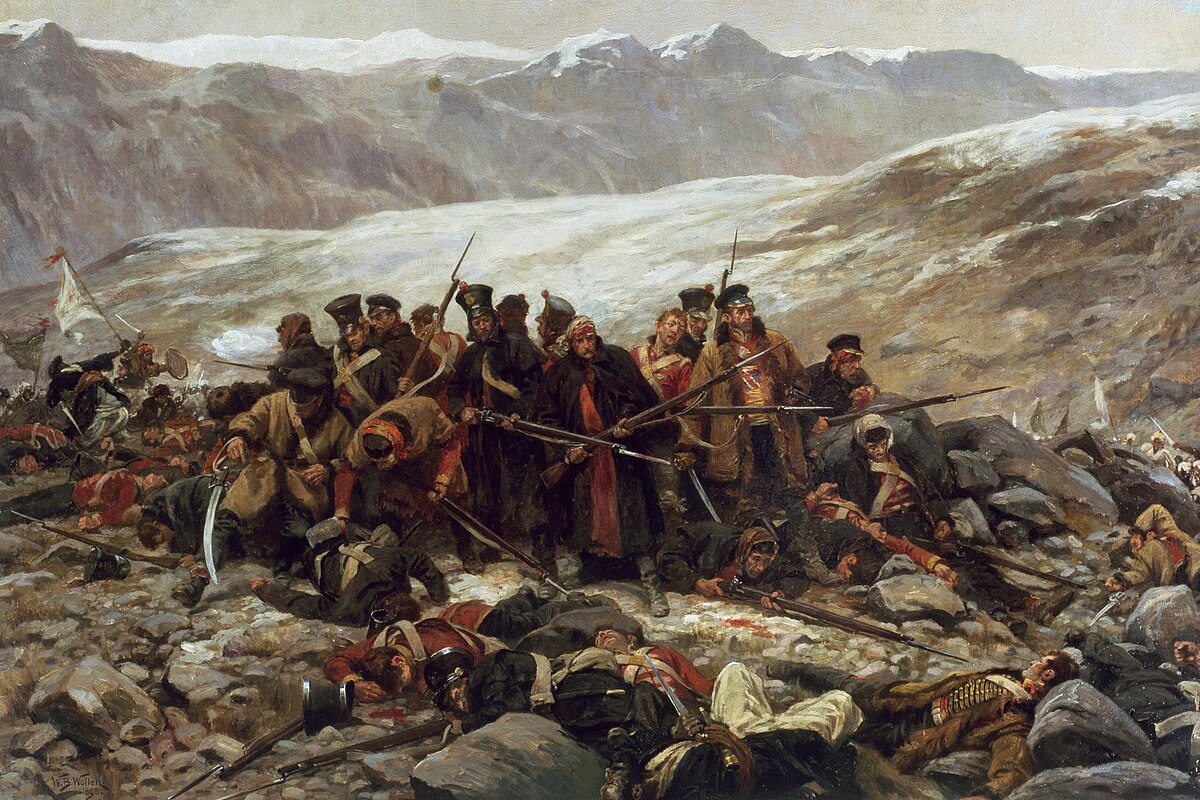The 1842 retreat from Kabul was the retreat of the British and East India Company forces from Kabul during the First Anglo-Afghan War. An uprising in Kabul forced the then-commander, Major-General William Elphinstone, to fall back to the British garrison at Jalalabad. As the army and its numerous dependents and camp followers began their march, it came under attack from Afghan tribesmen. Many in the column died of exposure, frostbite or starvation, or were killed during the fighting.
In total the British army lost 4,500 troops, along with about 12,000 civilians: the latter comprising both the families of Indian and British soldiers, plus workmen, servants and other Indian camp followers.
Out of more than 16,000 people from the column commanded by Elphinstone, only one European (Assistant Surgeon William Brydon) and a few Indian sepoys reached Jalalabad. Over one hundred British prisoners and civilian hostages were later released.


